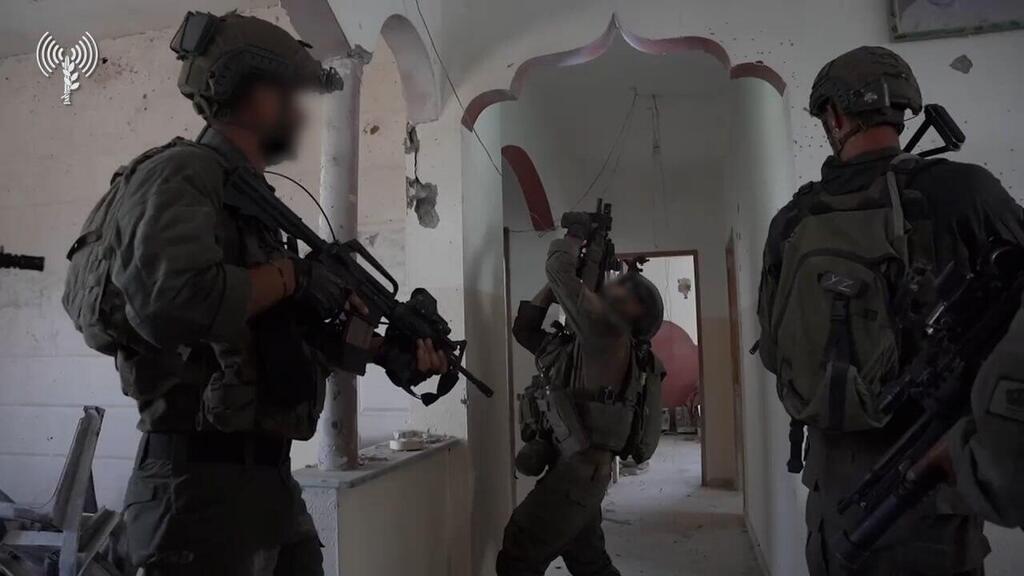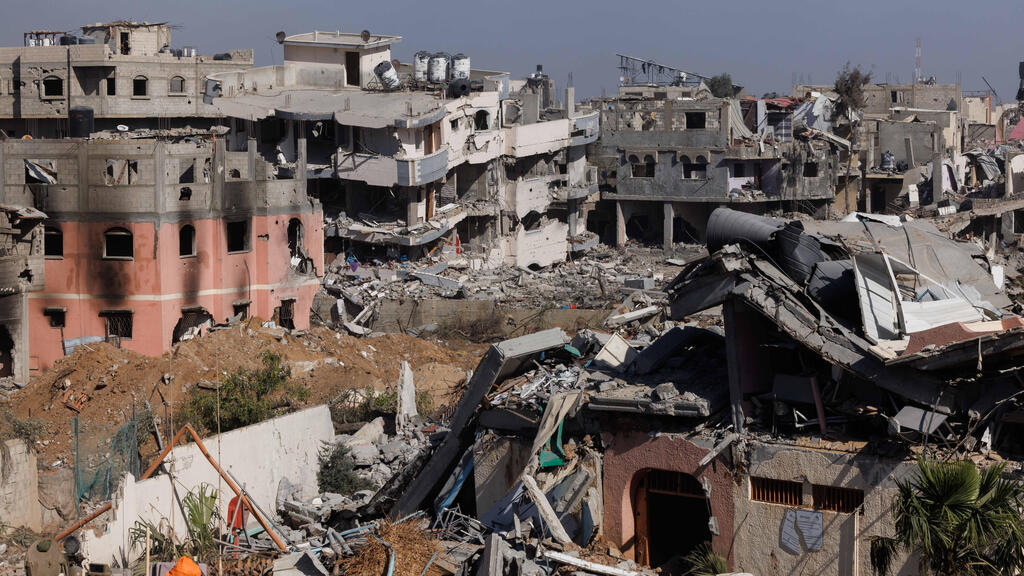The horrific blow on October 7, the 120 hostages still held by Hamas, the futile war in the south, the two security belts within Israel and the incessant shelling by Hezbollah have left decision-makers in a state of continuous embarrassment.
Joining them (a partial list) are the current and former generals, TV commentators and all the military and "Arab affairs" correspondents who got used to puffing out their chests, uttering war cries meant to instill fear in their listeners.
The almost decisive blow was delivered to them last week by IDF Spokesperson Rear Admiral Daniel Hagari, who got entangled in the worst thing that could happen to an IDF spokesperson: he told the truth. This week, National Security Advisor Tzachi Hanegbi joined him with the same words.
"It's impossible to destroy or collapse Hamas," Hagari said in a series of TV interviews, explaining that while the IDF might be close to submitting the terrorist organization militarily, Hamas is an idea, and anyone who tells a different story is simply pulling the wool over the public's eyes.
In the inflammatory, toxic and bubbling state of public discourse, Hagari's words fell straight into the Pavlovian jaws of the cult's tweeters, who were already in the midst of their own campaign. "The army is soft,” sang the chorus, “its generals are leftists, and that's why we don't achieve total victory."
Hagari, it seems, struck a nerve: he reminded the political echelon that it must take care of everything beyond the IDF's responsibility, and refreshed the public’s memory regarding the limits of power.
But since when does the IDF or the use of armed force in Israel have limitations? Military power is everything here. It is immeasurable, the fusion of Zeus, Poseidon and Hades, and there is no problem or distress that it cannot solve - tactical, strategic or a hiccup in the passport control queue.
Hence the blind rage, destruction, ruin and killing we unleashed - because we promised that Gaza would turn into a football field without grass; we brought King Kong who grabs the towers in Gaza and crushes them between his fingers as if they were fine dust.
Alas, not only did those who were supposed to collapse not collapse, and not only did the "military pressure" not bring back the hostages, but the hostages are being killed one after another as a result of the immense destruction we have wrought, and within the sovereign territories of Israel, two hemorrhaging and grinding security belts have emerged, from which our own residents have fled.
The nation that was established and immediately defeated seven foreign armies, reclaimed its holy sites in six days, boasts the strongest army in the Middle East and, according to foreign reports, nuclear power, is unable to protect its citizens, hostages and soldiers on any front. On the contrary, the sales of private generators, satellite phones, canned goods, water bottles, and on top of all, tickets to places of refuge, are soaring.
And the omnipotent army is forced to stand before its citizens and explain in plain language that even the King of Kings cannot create a figure stronger than himself. Even the power of the omnipotent is limited.
Now, before a war in Lebanon that will bring another disaster to the region, it is worth scheduling an appointment at a rehab clinic, and rid ourselves of the notion of unlimited power. The Alcoholics Anonymous method has 12 steps, but they must begin with the addict acknowledging that they have lost control of their life and are powerless against the substance to which they are addicted. It is the first, crucial step.
For the purpose of rehabilitation, a collective software update is required - to part with the retired generals who flood the television studios and urge the army to starve, thirst, cut off, destroy and kill. To stop admiring the company commander in basic training who explains to us that "what doesn’t work by force, works with more force." To understand that Bar Kokhba brought a disaster upon the Jews and that the supposedly heroic suicide in Masada was a failure. All these need to be learned to set aside. To get rid of them. Not to rely on them and not to run to them in moments of crisis or distress. They are our bitter downfall.
The terrible blow that was inflicted on us and the longest war in Israel's history should teach us an important lesson about the limits of power; about the need to resolve conflicts through savvy diplomacy, alliances and agreements. It should teach us that the use of force is only a means, and its cost is heavy - in lives, in the economy, in society and in the loss of friends around the world.
If we try to escape from our rehab, we will continue to pay with human lives, and with the mental health of an entire generation; tens of thousands or hundreds of thousands of young men and women who will never be the mature adults they could have been.
 Nissim DouekPhoto: Unik
Nissim DouekPhoto: UnikWe will continue to be a nation addicted to anxieties, pain, funerals, bereavement and parents burying children. To the casualty notification officers who might knock on the door. How difficult it is to wean ourselves off from all these things, but how worthwhile it is.Nis
Nissim Douek is a media and communications advisor and founder of Unik public relations firm





